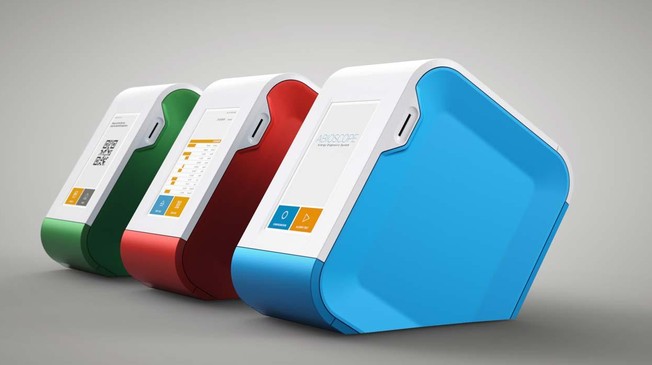Abionic, an EPFL spin-off, has just brought in 20 million francs in its third funding round. The company’s rapid allergy test can now be used to detect sepsis as well. A clinical study will begin in April.
Abionic, an EPFL spinoff, has raised 20 million francs in its third financing round. The company, which specializes in rapid allergy testing, brought in a total of 11.3 million francs in earlier funding rounds. It will use this latest cash injection to run a clinical study on diagnosing sepsis, a dangerous form of bacterial infection in humans.
Abionic’s biomedical diagnostic platform, based on microfluidics, delivers test results using a single drop of blood in a matter of minutes, while existing methods require several hours. The startup was created in 2010 and now operates out of the Biopôle complex in Lausanne. It already sells a device to test several respiratory allergies and an iron-deficiency test.
Detecting septicemia in five minutes
The fresh money will mainly be used to launch a clinical study in April for the company’s sepsis test, which delivers preliminary results in a mere five minutes. “It’s the fastest in the world,” says Nicolas Durand, Abionic’s CEO and cofounder. Every year, hospital emergency rooms in Switzerland handle several hundred cases of septicemia, which proves fatal for around 15% of these patients. The new device will be tested on more than 300 patients in 14 intensive-care units in Switzerland, Italy, France and the UK. This early-warning test, called Pancreatic Stone Protein (PSP), could for example be used by emergency-room staff to assess the level of risk and decide whether or not to begin an antibiotic treatment. This could ultimately save the lives of intensive-care patients. “This real-time diagnostic device is essential for doctors, allowing us to quickly begin a course of antibiotics and resuscitation,” says Bruno François, head of the intensive-care unit at the University Hospital of Limoges in France and lead researcher on the study.
The company, whose system has been registered with the United States Food and Drug Administration, plans to launch its device on the US market in 2018. It is also continuing to develop other rapid tests, such as for other allergies and for asthma and thrombosis.























